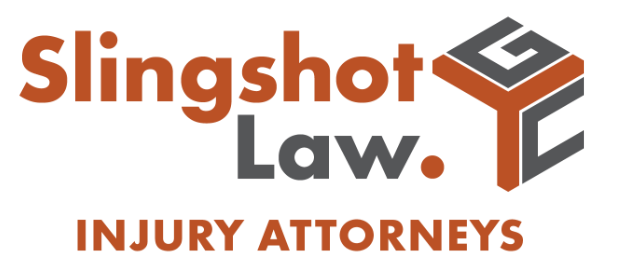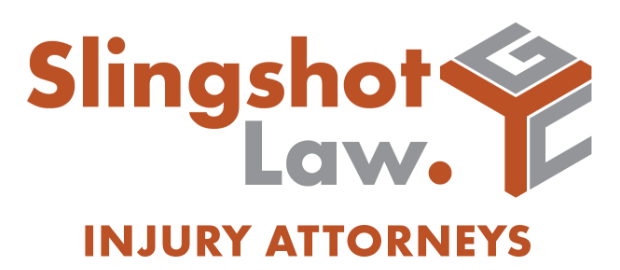An Austin brain injury lawyer secures the medical imaging, neuropsychological testing, and accident scene evidence that proves your traumatic brain injury claim before it vanishes. At Slingshot Law, we coordinate neurologists, life-care planners, and economists who document cognitive deficits and quantify decades of future care costs.
Traumatic brain injuries from car crashes, falls on unsafe property, workplace incidents, or assaults disrupt every aspect of daily life. The costs of cognitive rehabilitation, vestibular therapy, and occupational therapy continue to grow, personality changes strain relationships, and career prospects are impacted.
While you focus on cognitive therapy and recovery, we build the case that holds negligent parties accountable. Contact a TBI attorney in Austin now for a free case review at (866) 647-1311.
Key Takeaways for Austin Brain Injury Cases
- MRI, DTI scans, and neuropsychological evaluations document cognitive deficits that adjusters deny or downplay
- Neurologists, vestibular therapists, and life-care planners quantify future medical needs and lost earning capacity
- Surveillance footage, maintenance logs, and witness memories fade within days; early evidence preservation is crucial
- Texas reduces recovery by your percentage of fault, making early investigation critical to prove liability
- Slingshot works on contingency – you pay nothing unless we recover compensation, and we advance costs for expert witnesses and life-care planners, when needed
Why Injured Parties and Families Choose Slingshot Law

Brain injury cases demand more than general personal injury experience. Familiarity with and knowledge of neurological medicine and life-care planning separates strong claims from settlements that leave families undercompensated for decades of care needs.
Trial-Ready Representation Against Insurance Giants
Insurance companies might deploy teams of lawyers and doctors to defeat brain injury claims. They know some firms settle rather than invest in expensive expert testimony and trial preparation. We prepare every case as if it will go to trial, because that preparation forces better settlement offers.
Our Austin trial team has recovered significant verdicts and settlements in severe TBI cases throughout Travis County. When warranted, we coordinate neurologists, neuropsychologists, and economists who translate medical findings into persuasive testimony. If insurers refuse fair offers, we proceed to trial rather than accept inadequate compensation.
Evidence Preservation Before It Disappears
Insurance carriers understand that evidence fades with time. Surveillance footage recycles weekly. Accident scenes get cleaned or repaired. Witnesses forget details or move away. We act within days to preserve proof before it vanishes by:
- Sending spoliation letters to notify defendants of their legal duty to preserve records
- Requesting document holds to prevent the destruction of maintenance logs, inspection reports, and internal communications
- Early investigation to capture witness statements while memories remain fresh
- Scene documentation to photograph hazards or capture accident evidence
No Upfront Costs—We Advance All Case Expenses
Brain injury cases require substantial investment. If needed for your case, neuropsychological testing, life-care planning, accident reconstruction, and expert witness fees add up quickly.
Families facing mounting medical bills should not also bear the burden of litigation costs. We advance these costs without requiring upfront payment from clients. Our contingency-fee structure means we recover expenses only if we win compensation. This aligns our financial incentives completely with yours.
If you or a loved one has suffered a brain injury because of another’s negligence, call us for a free case review at (866) 647-1311.
What Is a Traumatic Brain Injury?
A traumatic brain injury occurs when an external force disrupts normal brain function. The Centers for Disease Control and Prevention classifies TBIs as mild (concussion), moderate, or severe based on Glasgow Coma Scale scores and loss of consciousness duration.
Mild TBI symptoms include headaches, dizziness, memory lapses, and sensitivity to light or noise. Moderate and severe TBIs produce prolonged unconsciousness, skull fractures, intracranial bleeding, and diffuse axonal injury (microscopic tearing of nerve fibers visible only on specialized DTI imaging). Post-concussion syndrome extends symptoms beyond three months, disrupting work, school, and relationships.
Brain injuries cause both immediate and delayed complications. Swelling or hematomas develop hours after impact. Cognitive deficits surface weeks later during rehabilitation. Insurance adjusters exploit these delays, arguing that symptoms stem from unrelated causes or exaggeration.
How Brain Injuries Happen in Austin
Common causes of traumatic brain injuries in Austin include motor vehicle crashes, dangerous property conditions, workplace hazards, and violent attacks. How your injury occurred shapes the evidence needed to prove negligence and hold responsible parties accountable:
- Motor vehicle collisions on high-speed corridors like I-35, MoPac, and US 183 cause violent head impacts through rear-end collisions, T-bone crashes at intersections, and sideswipe incidents. Motorcyclists and bicyclists face even greater risk, lacking protective structures surrounding car occupants. Pedestrian accidents near the University of Texas campus, Downtown Congress Avenue, and East Sixth Street often result in severe head trauma.
- Slip-and-fall accidents on unmarked wet floors, broken stairs, inadequate lighting, or uneven surfaces cause backward falls that slam heads against concrete or tile. Grocery stores, restaurants, retail locations, and apartment complexes throughout Austin generate premises liability claims when property owners ignore known hazards.
- Workplace incidents expose construction workers, warehouse employees, and maintenance staff to falling tools, scaffolding collapses, ladder falls, and struck-by injuries. While workers’ compensation covers medical bills, third-party negligence creates separate injury claims.
- Assaults and criminal attacks result in traumatic brain injuries when victims are struck, thrown to the ground, or injured during robberies. Negligent security cases arise when property owners fail to provide adequate lighting, cameras, or security personnel despite knowing about prior crimes.
Each mechanism requires different proof strategies to establish liability and overcome insurance defenses. Experienced brain injury attorneys in Austin know what evidence to gather and how to present it.
How We Prove Liability in Austin TBI Claims
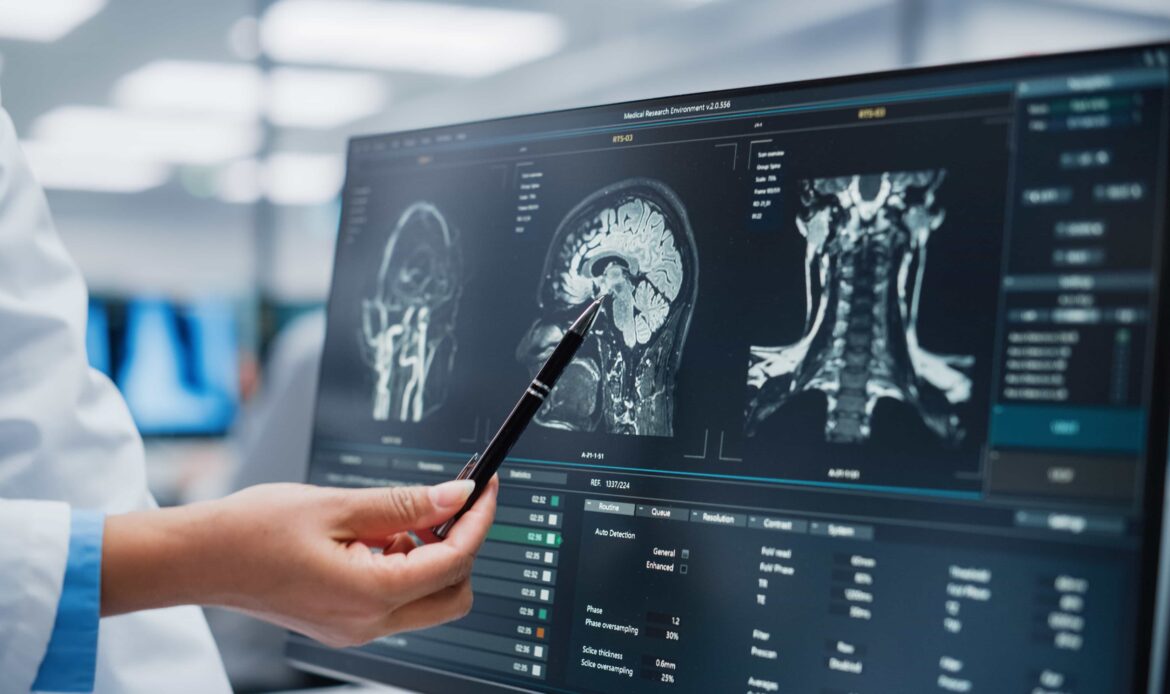
Insurance adjusters may challenge every element of a brain injury claim. We counter with evidence that proves both injury severity and defendant negligence.
Evidence our TBI attorneys secure in Austin brain injury cases includes:
- Emergency room records, ambulance run sheets, and 911 calls documenting immediate symptoms
- CT, MRI, and DTI imaging from Dell Seton, St. David’s, or Baylor Scott & White facilities
- Neuropsychological test batteries administered by licensed psychologists
- Police reports, witness statements, and accident scene photographs
- Surveillance footage from traffic cameras, businesses, or property security systems
- Cell-phone records, bar receipts, and toxicology results in impaired-driver cases
- Property inspection logs, maintenance records, and prior incident reports for premises cases
- OSHA 300 logs, subcontractor agreements, and site-safety plans for workplace injuries
Medical records alone prove injury but not cause. Accident evidence alone proves the incident, but not the injury. Layering both types of proof helps silence adjuster denials and forces insurers to address the claim value.
Injuries and Damages in Austin TBI Cases
Brain injuries vary in severity but share lasting consequences. This is not just medical terminology; this is evidence of the harm and pain that another’s negligence caused you.
Types of Traumatic Brain Injuries
Brain injuries vary in type and severity, each causing distinct symptoms and recovery timelines:
- Concussions involve temporary loss of consciousness or confusion after impact. Most resolve within days, but some develop post-concussion syndrome with chronic headaches, dizziness, and cognitive fog lasting months or years.
- Skull fractures occur when impact breaks cranial bones, pushing bone fragments into brain tissue or causing cerebrospinal fluid leaks at the skull base. Depressed and basilar fractures carry infection risk and often require surgical repair.
- Diffuse axonal injury results from rotational forces that shear nerve fibers throughout the brain. Standard imaging misses this microscopic damage, which appears only on DTI scans. Victims experience persistent memory problems, slowed thinking, and personality changes despite normal CT results.
- Contusions are brain bruises from direct impact. Coup injuries occur at the impact site, while contrecoup injuries appear on the opposite side as the brain rebounds against the skull.
- Hematomas are blood collections that compress brain tissue and require urgent intervention. Epidural hematomas between skull and dura demand emergency surgery, while subdural hematomas beneath the dura develop more slowly but cause progressive neurological decline.
Compensation Categories in Texas Brain Injury Claims
Texas law permits recovery for both economic and non-economic losses in brain injury cases:
- Past and future medical expenses, including emergency care, hospitalization, surgery, rehabilitation, and ongoing therapy
- Lost wages from time away from work during treatment and recovery
- Diminished earning capacity when cognitive deficits prevent returning to prior employment or career advancement
- Pain and suffering from physical injuries and the trauma of the incident
- Mental anguish, including depression, anxiety, and emotional distress, from permanent changes
- Disfigurement from visible scarring or physical changes
- Physical impairment affecting daily activities, independence, and quality of life
Claim value depends on injury severity, duration of hospitalization, permanency of cognitive deficits, age and pre-injury earning capacity, quality of medical documentation linking symptoms to the incident, and strength of liability proof.
Additionally, Texas proportionate responsibility rules found at § 33.001 et seq. reduce recovery by the plaintiff’s percentage of fault and bar recovery entirely if the plaintiff is more than 50 percent responsible. A trusted Texas brain injury attorney can build a solid case showing that the other party bears primary responsibility.
What to Do After a Brain Injury in Austin
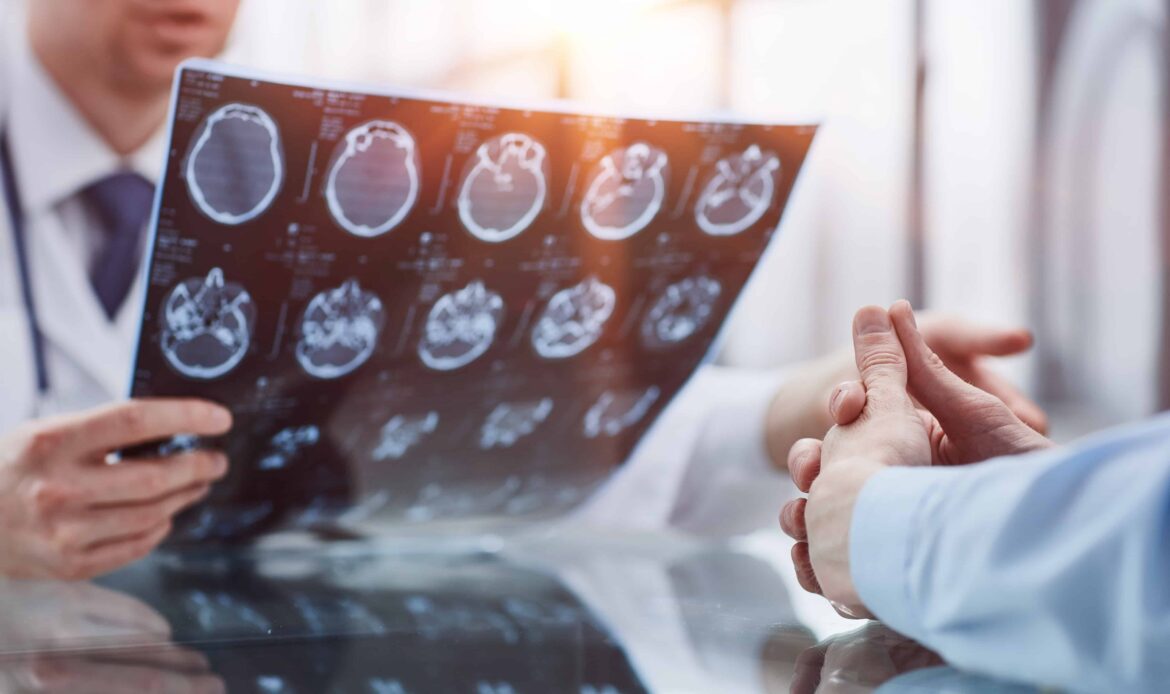
Medical treatment creates the foundation for legal claims. Delayed care gives insurers ammunition to argue injuries were minor or unrelated. After an accident, be sure to:
Seek evaluation even if you feel fine. Brain bleeding or swelling develops hours after impact. And many severe TBIs involve lucid intervals before sudden deterioration. Emergency departments at Dell Seton Medical Center or St. David’s South Austin Medical Center provide immediate CT imaging.
Follow specialist referrals. Neurologists diagnose and treat brain injuries. Neuropsychologists administer cognitive testing. Physiatrists coordinate rehabilitation. Vestibular therapists address balance problems. Refusing referrals opens the door for adjusters to question injury severity.
Document symptoms daily. Memory problems make recollection difficult during depositions months later. Note headaches, dizziness, sleep disturbances, mood changes, and concentration difficulties. Save pharmacy receipts and therapy appointment records.
Do not give recorded statements to insurance adjusters. Texas law does not require cooperation with the at-fault party’s insurer before litigation. Adjusters use early statements to lock in minimized symptom descriptions before the full injury scope emerges. Politely decline and refer them to your attorney.
Avoid social media posts about the incident or recovery. Insurers monitor Facebook, Instagram, and LinkedIn for content contradicting disability claims. A smiling photo at a family gathering becomes “proof” of exaggerated symptoms, even if the victim felt miserable throughout.
Contact an Austin brain injury lawyer immediately. Slingshot Law acts within days to preserve evidence before it disappears. Early legal representation prevents costly mistakes and prevents insurance companies from exploiting confusion or delayed symptoms to deny your claim. We handle communication with adjusters while you focus on recovery.
Fighting Insurance Companies in Austin TBI Cases
Insurance companies use specific strategies to minimize brain injury claims. This may look like adjusters requesting recorded statements within days of the incident, when victims may still be confused from head trauma and describe symptoms incompletely, independent medical exams involving doctors who spend minimal time reviewing records and produce reports that contradict treating physicians, or mischaracterization of routine activities to challenge disability claims.
Our lawyers strengthen your position by:
- Managing adjuster communications and your insurance claim
- Coordinating independent neuropsychological testing before insurer-selected exams
- Documenting activity restrictions with functional capacity evaluations
- Preparing rebuttal experts who expose defense doctors’ bias and methodology flaws
- Filing bad-faith claims when delay or denial becomes unreasonable
Texas law recognizes insurance bad faith as a separate cause of action. When carriers deny valid claims without a reasonable basis or fail to conduct an adequate investigation, victims may recover not just claim value but also mental anguish damages and attorney fees.
FAQ for Austin Brain Injury Lawyer
Do I Need a Lawyer for a Brain Injury Case in Austin?
Brain injury cases involve complex medical testimony, multi-defendant liability disputes, and sophisticated insurance tactics that make self-representation nearly impossible. Insurers pay unrepresented victims far less because they know victims lack the experience to quantify future losses or counter lowball offers.
How Long Do I Have to File a Brain Injury Claim in Texas?
The Texas statute of limitations allows two years from the injury date. You will want to take immediate action to secure evidence, build your case, and file within the statute of limitations and any insurance policy deadline.
How Much Does It Cost to Hire a Brain Injury Lawyer in Austin?
Our Austin brain injury lawyers work on contingency, meaning you pay nothing up front and fees come only from the settlement or verdict. We advance all case costs, including expert witnesses, medical records, and testing.
What if the Insurance Company Already Made Me an Offer?
Early settlement offers may undervalue claims, possibly excluding future medical costs, long-term care needs, and permanent cognitive impairment. An attorney reviews the offer against your actual damages and future losses.
Can I Still File a Claim if I Didn’t Go to the Hospital Right Away?
Delayed medical treatment may complicate, but does not eliminate, brain injury claims. Neurologists and neuropsychologists can link later-discovered symptoms to the original incident through imaging and cognitive testing.
Contact an Experienced Austin Brain Injury Lawyer
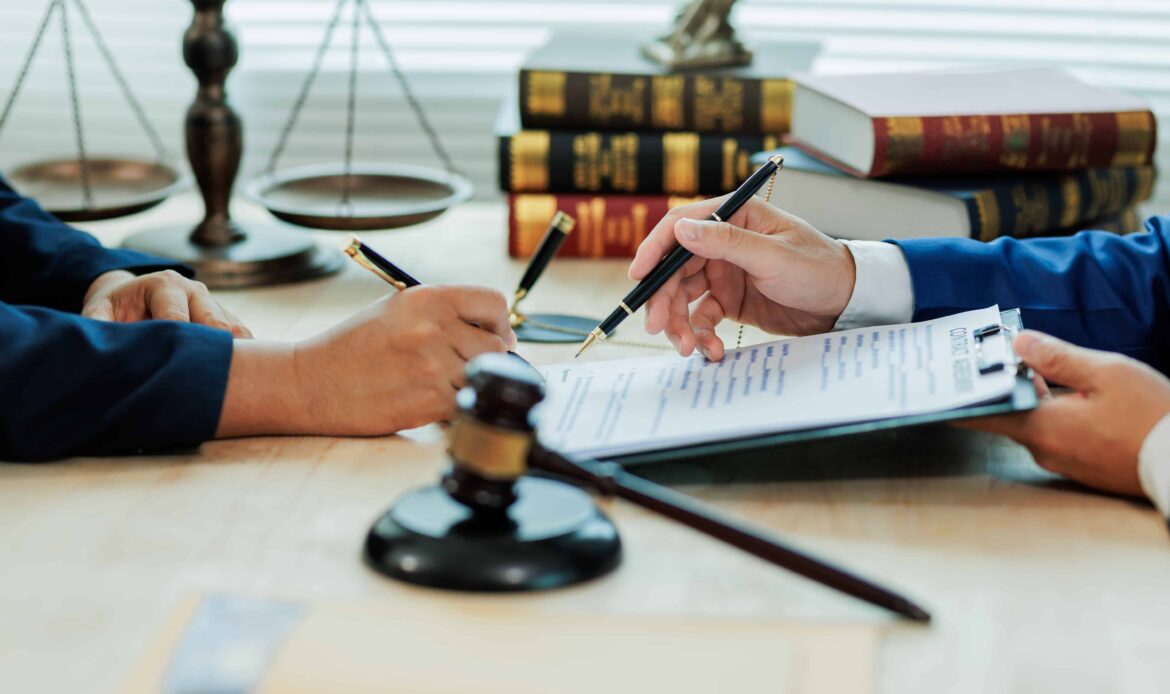
Brain injuries reshape every aspect of life: work capacity, relationships, and daily independence. While you focus on cognitive rehabilitation and recovery, insurance companies have a team of adjusters and lawyers focusing on your claim. You need legal representation that fights for fair compensation.
Evidence disappears daily. Surveillance footage overwrites. Witnesses forget. Property owners repair hazards. The sooner we begin, the stronger your case becomes.
Call (866) 647-1311 to discuss your Austin brain injury claim with an experienced attorney. We advance all case expenses and recover fees only if we win compensation for you.
Let us handle the legal battle while you focus on healing and moving forward.
Austin Office
Address: 1802 Lavaca St, Austin, TX 78701
Phone: 866-647-1311
